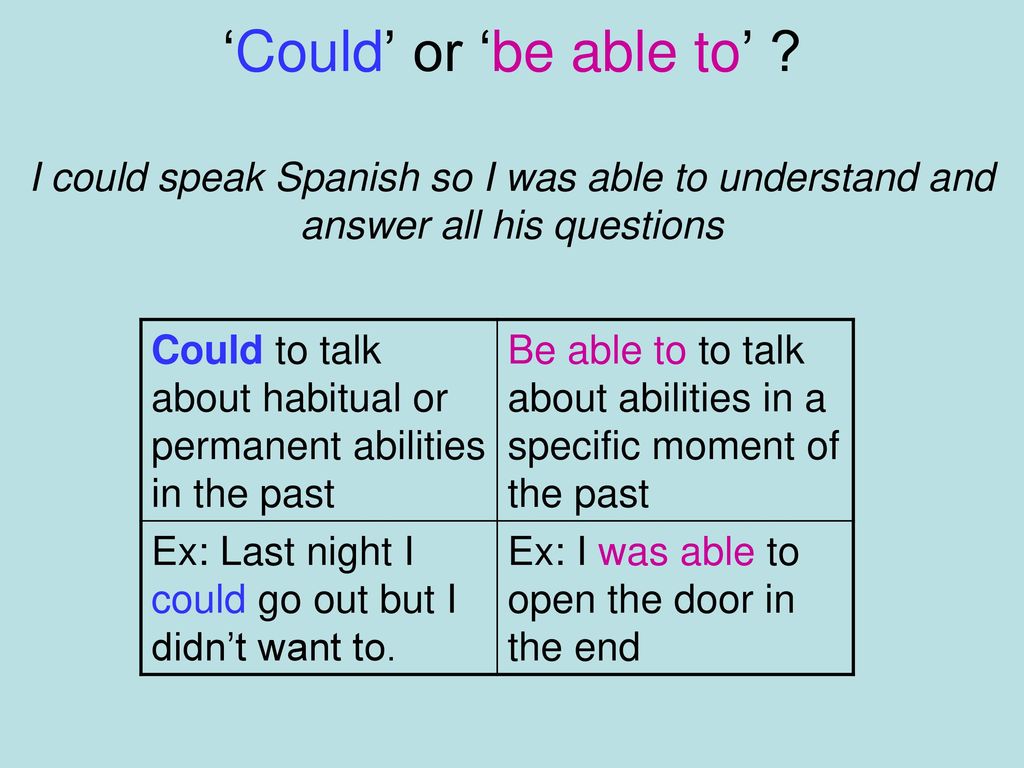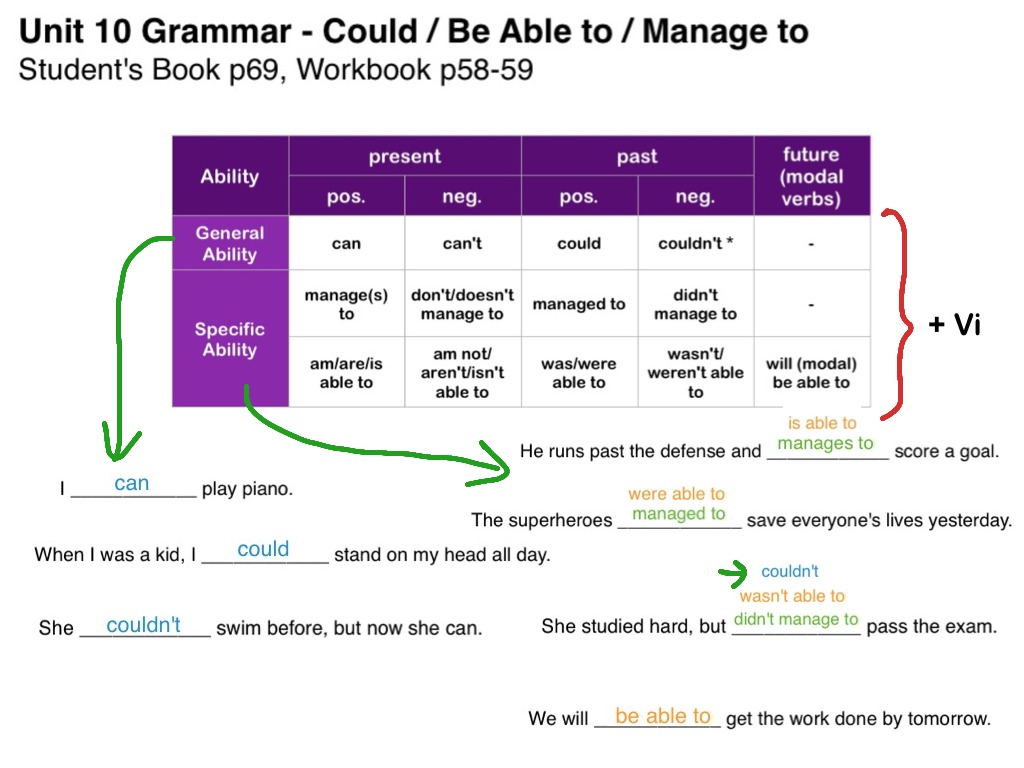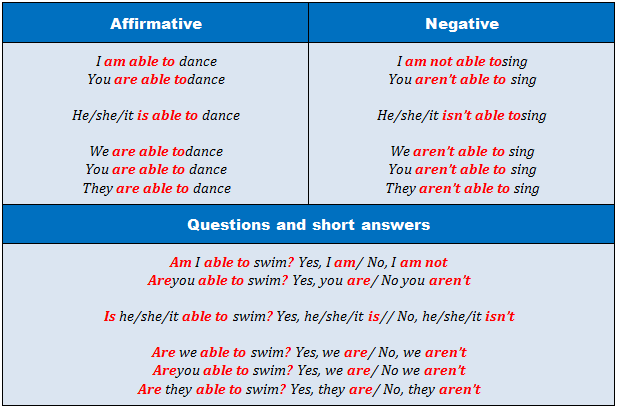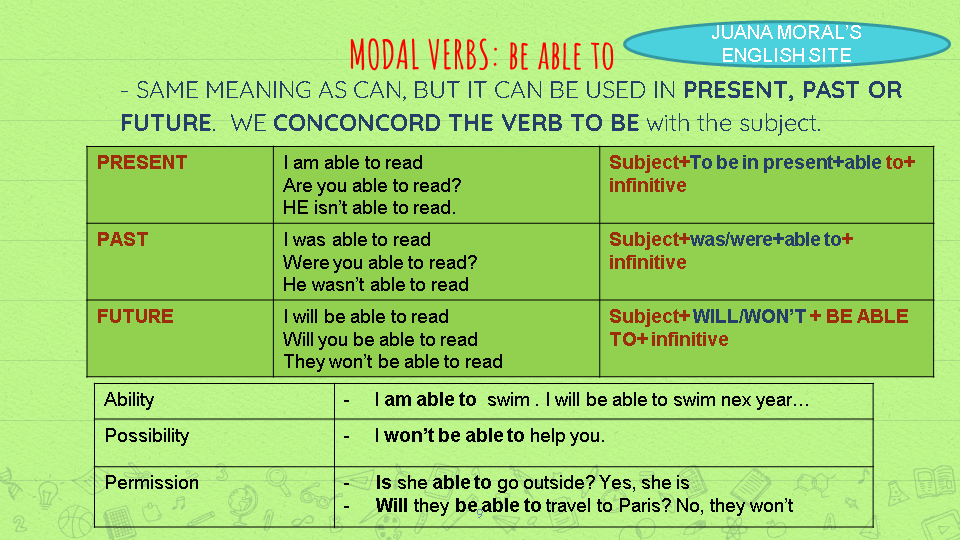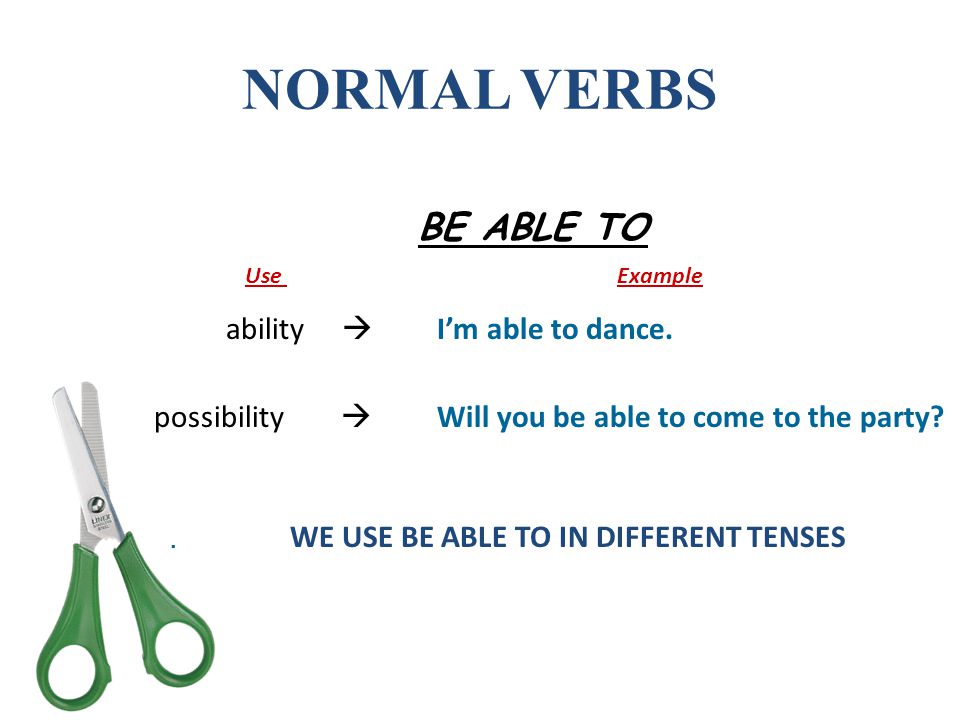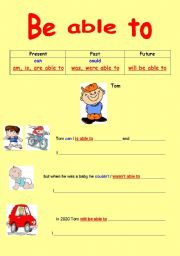
CAN / BE ABLE TO. 1. ABILITY He can speak two foreign languages fluently. He can speak two foreign languages fluently. He is able to speak two foreign. - ppt download

ABILITY. CAN and CAN'T We use can to say that someone has an ability (Natasha can play the piano) or an opportunity (She can go to the music room). - ppt

ABILITY. CAN and CAN'T We use can to say that someone has an ability (Natasha can play the piano) or an opportunity (She can go to the music room). - ppt

MODALS. Form Modal verbs are followed by infinitives: I can swim You ought to learn how to swim Modal verbs can also be followed by Have + Third form. - ppt download
